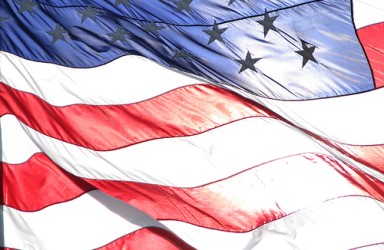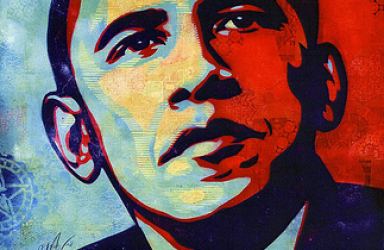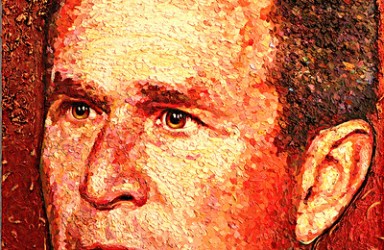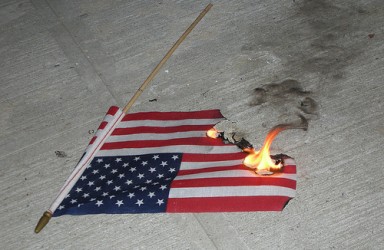USA: Status Quo or Revisionist Power?
Although the United States’ irrational, and at times, imperialistic actions are seen to be out of the desire to spread American ideals, the superpower in reality is more concerned about the preservation of the global order. The fact that the United States is concerned over not only the security and peace of the world but the betterment of mankind is precisely the reason why the United States is allowed to call itself a status quo power.
Visual Culture in Politics: The Obama “Progress” Poster
The 2008 US Presidential Elections was a watershed in American politics which culminated with Barack Obama being sworn in as the nation’s first African-American president. The “Progress” poster by street artist Shepard Fairey was an important medium in which the message and ideals of Barack Obama were instantly transmitted to the public.
American Pre-eminence and the Cold War
The origins of the Cold War cannot be fully understood through simplistic, monochromatic interpretations. Consequently, traditionalist and revisionist interpretations are inadequate as explanatory tools, but act as the foundation for more complex interpretations. No master narrative on the origins of the Cold War exists. However, the complementary application of a post-revisionist and constructivist approach provide us with a deeper understanding
The Use of Dehumanizing Rhetoric in the War on Terror
Does George W. Bush’s rhetorical framing of the “War on Terror” conform to standard discourse regarding the practice of dehumanizing one’s enemies in times of war?
Operation Iraqi Freedom and the Obsolescence of War
One of the last major books about war in international relations is paradoxically a book forecasting the end of the object it analyses. Retreat from Doomsday: the Obsolescence of Major War by John Mueller was released in 1989 and has become a classic reading making the author one of the most influential authors on the topic of war.
What was Roosevelt’s ‘Vision of Europe’?
Roosevelt had a wide reaching and aggressive plan for planning post-war Europe. The formation of a strong Anglo-American alliance was critical for both parties during and after the war. For the United States, Britain was necessary in promoting democratic ideals and policing the states of Europe, something it was in a better geographical position to do. The signing of the Atlantic Charter in the early 1940’s cemented the partnership that has continued up to present times.
Strategic Partnership or Contending Coalitions? An Analysis of EU-NATO Relations
Fundamental problems, both structural and political, continue to characterise the EU-NATO relationship as one of ‘contending coalitions’. Yet, recent shifts in the attitudes of major actors coupled with success in simultaneous operations suggest there is potential for a ‘strategic partnership’ to emerge.
Anti-Americanism in Turkey since 9/11
There is certainly Anti-Americanism in Turkey and it has increased substantially after 9/11. Many polls conducted on Anti-Americanism show this fact clearly. But why has it increased, and what does the future hold now that Obama has been elected US President?
The United States’ Global Empire
Over the past century the U.S. has risen to be the undisputed world power, with its tentacles of influence sprawled across the globe, leaving almost no state untouched. However, does this significant power and influence construct qualify the United States for imperial status? Does its lack of territorial dominions, vassals, or a greater U.S. controlled commonwealth disqualify it from being an imperial power?
Is U.S. Power in Decline?
Sceptics of soft power proclaim that as long as the United States is strong enough, it can do what it wishes and thus “the world’s only superpower does not need permanent allies.” Nevertheless in light of the difficulties in Iraq and Afghanistan as well as the decline in the American economy following the fall of the loan market and “fewer genuine friends surrounding it”, one has to ask the question of whether or not US power is in decline.









